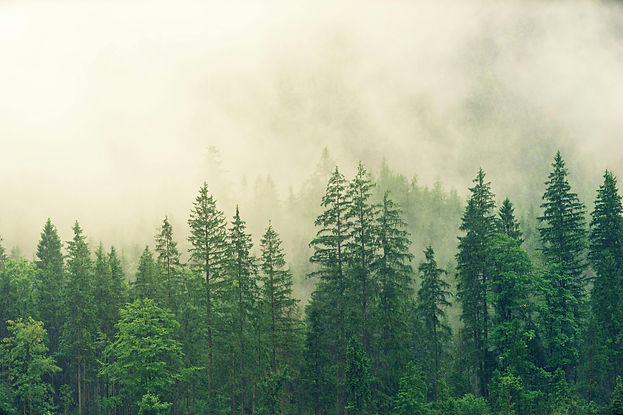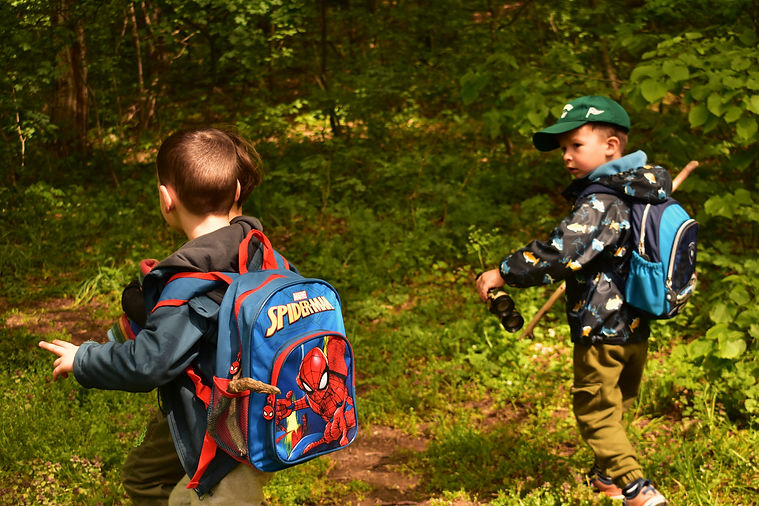
Program
2024/2025
The focus of the program is on the needs of the students themselves, spontaneous play, internal motivation, and curiosity, which are satisfied through unstructured time—free for exploration and spontaneous learning—and through organized workshop activities with experts in various fields.
The Forest School program is implemented daily, either for half or a full day, or once a week during weekly forest gatherings on Wednesdays.
Regular program
Weekend program
We invite all those who are interested in nature and in sharing knowledge and experiences about nature and humanity to join us in this adventure of creating spaces and tools for natural learning. The most beautifully shared lessons are those learned from the heart.
A day in the
Forest school
The day consists of free time for independent and group play and learning, a morning circle and reflection circle, as well as organized workshops that deepen experiential knowledge and skills.
09:00 Arrival, breakfast, free play
10:00 Morning circle
10:30 - 13:00 Time for activities
13:00 - 14:00 Lunch
14:00 - 15:00 Free play / group activities
15:00 - 16:00 Group clean-up and reflection circle
16:00 Departure
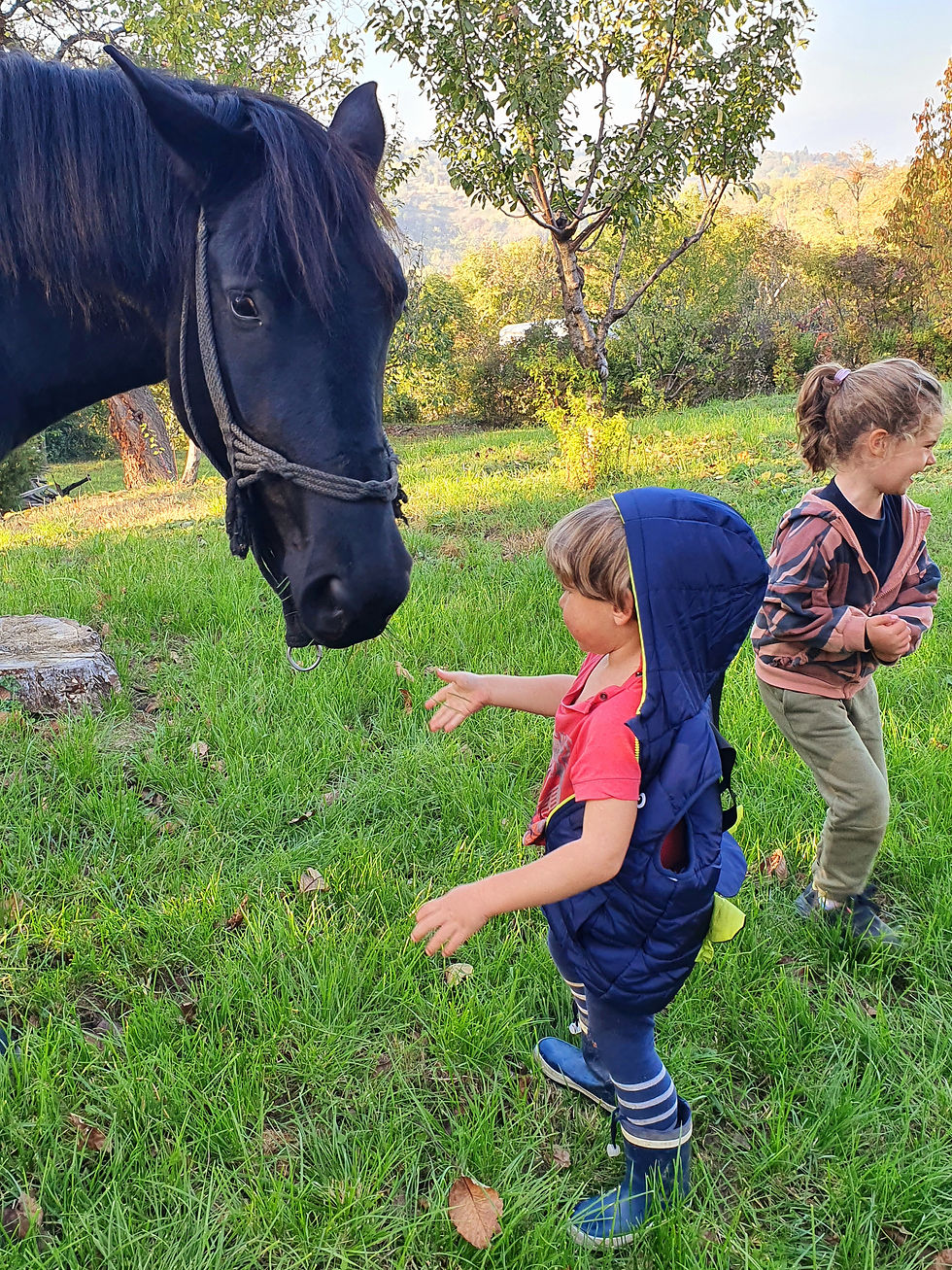
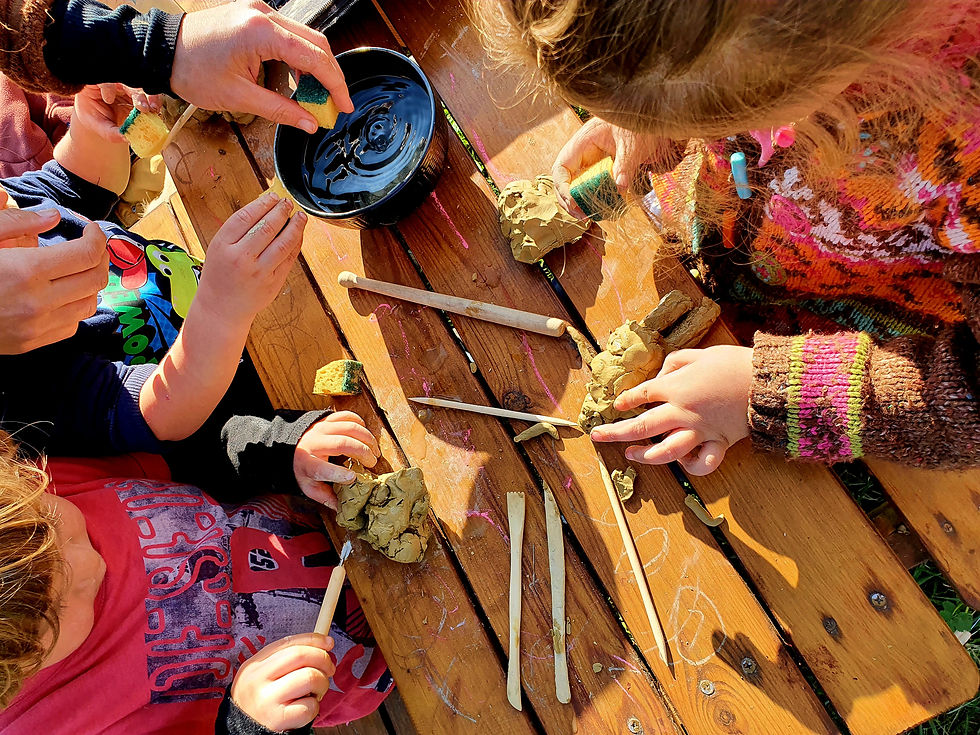


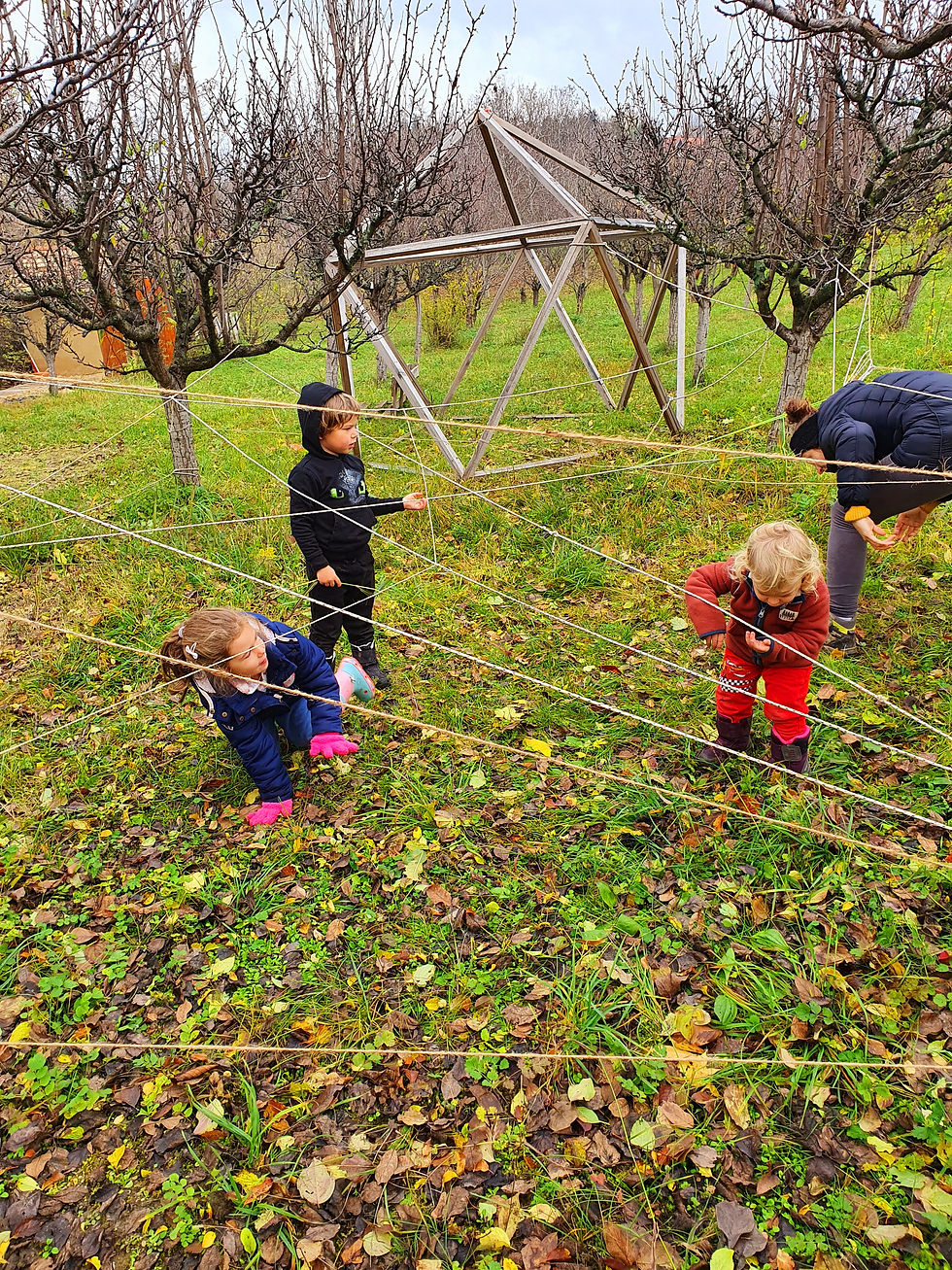


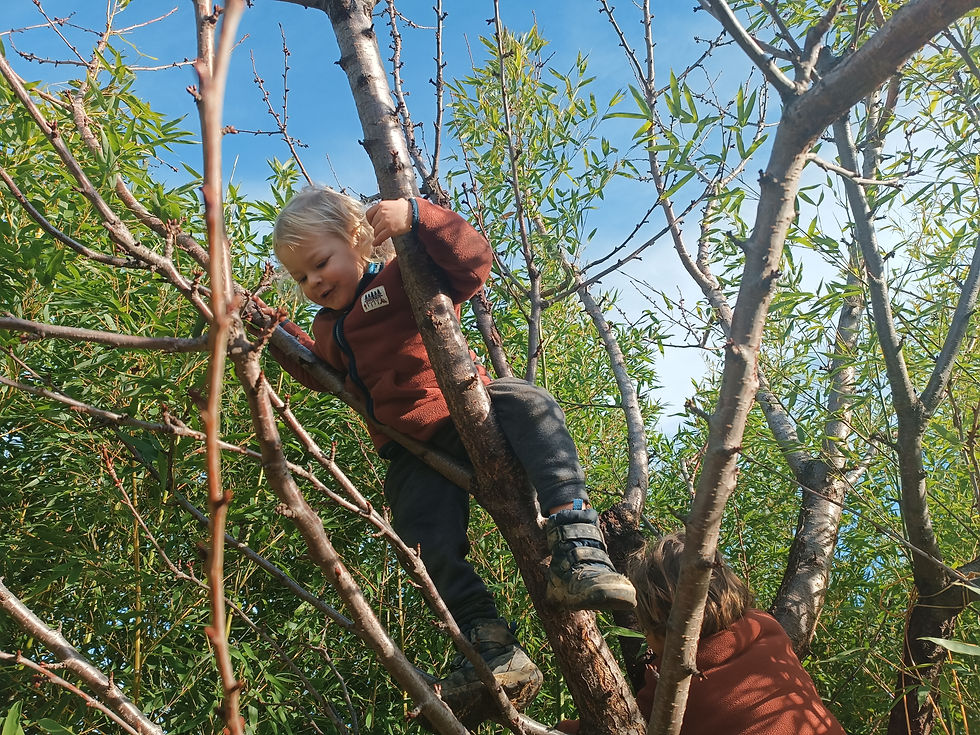
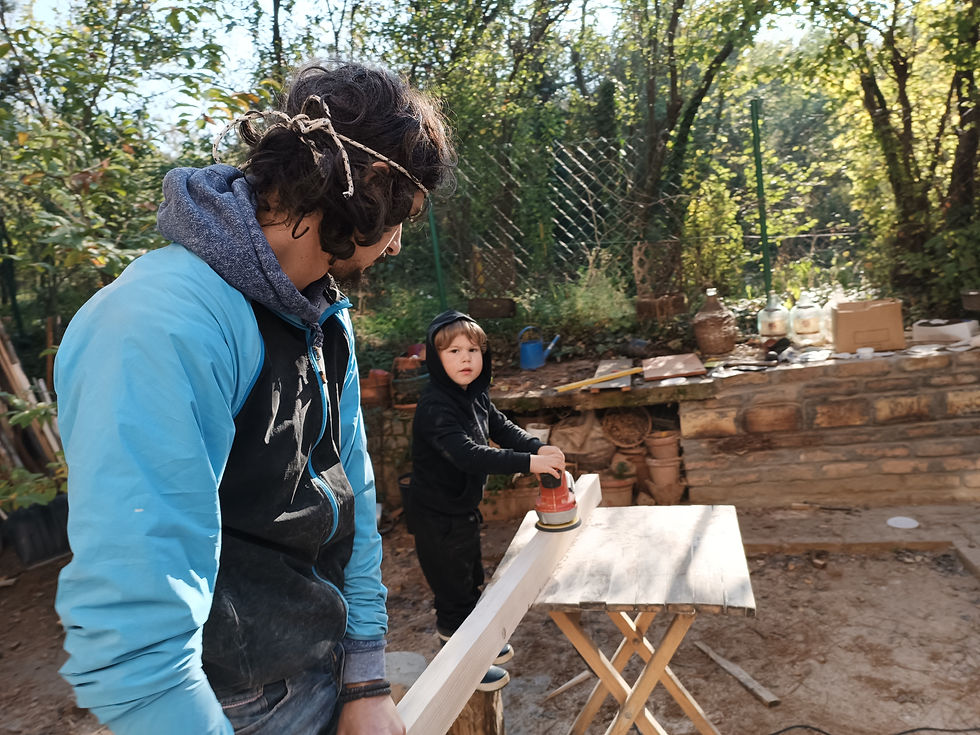
Areas of learning
In the Forest School, learning subjects are not separated from each other. We do not aim solely for the development of specialized knowledge but for a comprehensive understanding of objective human reality.
We believe that children learn better through examples that require knowledge from various fields (mathematics, biology, drawing, dance, etc.).
For instance, while building a birdhouse, we learn about trees, the ecology of the species that will inhabit the birdhouse, the proper use of tools, and how to calculate the size of the entry hole for an adult bird, among other things. In creative classes, the focus and attention may sometimes be on mathematics and logic, physics, chemistry, and biology, and other times on philosophy, history, psychology, sociology, and art.
Modern research blurs the boundaries between natural and social sciences, between nature and society. Where and how are the boundaries established between music and mathematics, between ethics and aesthetics, between psychology and sociology, philosophy and anthropology?
The pedagogical approach of the Forest School develops intellectual skills and knowledge in parallel with the understanding of our emotions and intuition, our cultural patterns, and habits in everyday life.

Self-awareness and awareness of others
The universal awareness that we teach through our pedagogical approach illuminates our inner strengths, voices, and motives that guide our thoughts, feelings, and behaviors.

Movement
By directing energy and attention towards movement, we learn to develop physical abilities and capacities, as well as our talents for sports, music, and other artistic activities.

Maths & Logic
Through mathematical and logical workshops and activities, we develop our brain's capabilities, learn to think, and solve problems both individually and as a team.

Communication
The development of communication helps children understand content and communication in different world languages, with a focus on Serbian, English, Italian, and Spanish. We also explore various forms of nonverbal communication.

Ecology & Permaculture
For the development of self-esteem and respect for others, we need knowledge about the relationships that create the rich living world in nature. Ecology helps us understand the world and nature, ourselves and our place in it, and to live in harmony with that understanding.
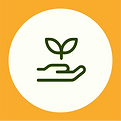
Food
From seed to plate
Working in our organic garden provides the opportunity to explore and understand nature, its laws, and relationships. Gardening and horticulture based on permaculture principles respect the cultivation of food according to nature’s principles, which are older than current human methods of growing and producing food.

Practical life excercises
Personal hygiene, the hygiene of our environment, and our relationship with nature and the environment teach us to respect living beings, evolutionary processes, and the relationships that create life.
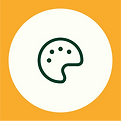
Arts & Crafts
The creation of artistic content begins with listening and mastering the movements of hands, pencils, brushes, keyboards, and other tools. Drawing, painting, knitting, dancing, singing, and playing music...

Navigating nature
We learn to navigate natural environments using our own skills, knowledge, and available resources. This includes how to build a shelter, safely start and maintain a fire, and find edible and medicinal plants...
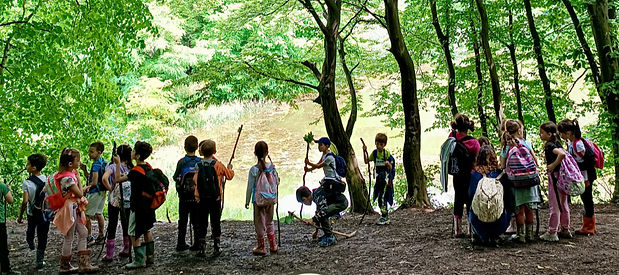
Suggested monthly donation
Šumska škola is the project of the non-governmental, non-profit organization 'Creative Network Panonika,' and as such, it does not aim to make a profit. All funds paid for registration fees are directed towards maintaining existing and expanding additional capacities of the Forest School.
It Includes:
-
Maintenance costs of the space
-
Food for participants, and facilitators (breakfast and lunch)
-
Educational materials and tools for activities
-
Occasional visits to nearby natural and cultural places
-
Costs of website and marketing
-
Donations for the work of facilitators
It does not include and is optional:
-
International diploma of West River Academy,
for students aged 6-18 year olds - for more info, check West River Academy -
Excursions and trips to other locations, theatre visits, exhibitions, museums, concerts, swimming, and other group-interest and possible activities and events
Full-day
35.000 din
300 eur
Half day
17.500 din
150 eur
Weekly meetings
1200 din
10 eur
Monthly
Per meeting
- 01
- 02
- 03
- 04
